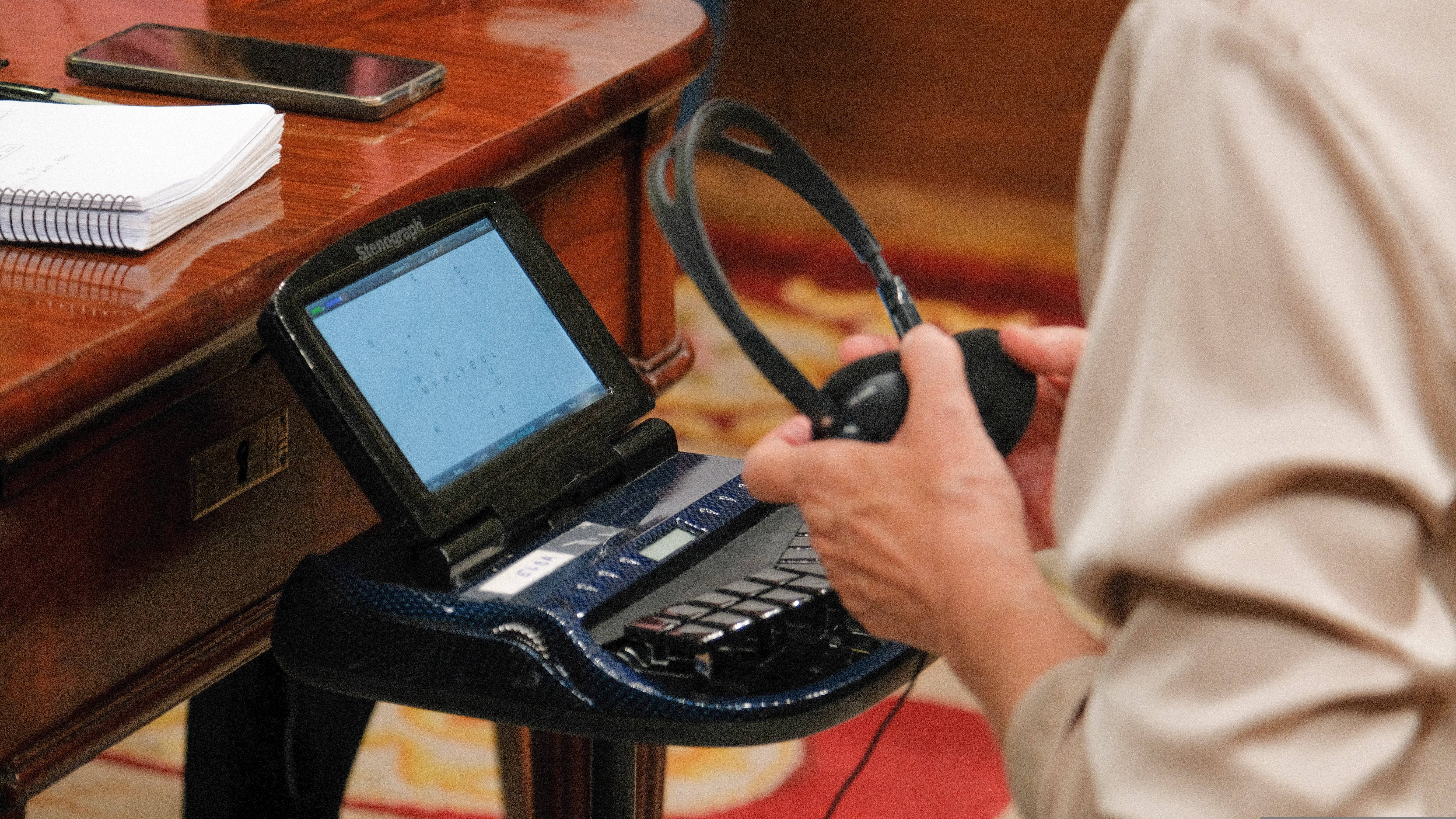The first step has been taken to allowing Catalan, Aranese, Basque and Galician to be used with full normality in Spain's Congress of Deputies from this week - and already today, the first congressional speeches have been made in Spain's co-official languages. The progressive majority of the lower house gave the green light to taking urgency in reforming the house's regulations on linguistic use, so that it will be definitive from Thursday. Together for Catalonia (Junts) and the Catalan Republican Left (ERC) are thus a little closer to obtaining what they asked from the PSOE in return for electing Francina Armengol as speaker of Congress, as the Socialists (PSOE) secured a majority of 176 votes on the urgency vote, thanks to Sumar, Bildu, PNB, BNG, Coalición Canária, apart from the Catalan pro-independence parties. On the other side, the 169 votes against of the People's Party (PP), Vox and the Unión del Pueblo Navarro.
These milestones were achieved, however, amidst an acrimonious debate, with constant outbursts, in which the Vox MPs walked out while the PP entered into contradiction with its usual discourse against the co-official languages of the state. Next Thursday, if there are no surprises, Congress will definitively vote on the reform of the chamber's regulations, and in this way a process of change in the institution's infrastructure will begin, which will allow the use of Catalan, Aranese, Basque and Galician at entirely the same level as Spanish: for the spoken and written use of all the languages to be possible in any situation, without the Spanish language being treated as superior in any circumstance.
Thus, Pedro Sánchez already has the photo he wanted, the one that shows the PSOE voting alongside ERC and Junts again, as happened in the constitution of the Congressional Bureau. After the reform is verified this Thursday, the acting Spanish PM will still have to crack the toughest nut, the negotiation for his investiture as PM. But the first stage of the process is on track after Congress approved the urgent processing of the text promoted by the PSOE, Sumar and the pro-independence parties.
Gabriel Rufián, from ERC, had the privilege of making the first speech in Catalan in Congress since the democratic recovery. This came after the Galician deputy of the PSOE, José Ramón Besteiro, had already been the first to baptise Congress's new multilingual era, in a speech that alternated between Spanish and Galician. In any case, Rufián's speech insisted on the need to preserve the linguistic rights of citizens throughout the Spanish state. "Rights are not violated today", said Rufián, who also argued that it would be a mistake to interpret the use of Catalan in Congress as a "victory" because Spain does not "lose" anything.
And, in addition, to illustrate that Catalan, along with Basque and Galician, does not represent any threat to Spanish, Rufián went through a list of English words that are used these days with absolute normality among Spanish speakers: "Checking, coaching, moving, selfie, meme, streaming, low-cost, start-up, gap, tracking, breaking...". “Do they use these words? And are Catalan, Aranese, Basque and Galician the languages that are threatening Spanish?” Rufián asked rhetorically.
Nogueras, in memory of Catalanophobia
When Junts spokesperson Míriam Nogueras came to the lecturn, she spent time reviewing the Catalanophobia that Catalans have historically suffered, while also making it very clear that the new objective that her party wants to achieve in Madrid, is the right to self-determination. "But we will talk about this in a few weeks", she said. Thus, the leader of Carles Puigdemont's party in the lower house pointed out that the persecution of Catalans did not start with the independence process, but rather goes back to past centuries: she gave the example of the Catalan language being banned in the 1920s by Primo de Rivera.
"One hundred years later, here we are", she said in reference to the holding of a debate to normalize the use of the co-official languages of the Spanish state in its Congress. Nogueras asserted during her speech that PSOE deputies "will never be able to go to prison for being Socialists", in the same way as Vox parliamentarians will not be jailed "for being from the extreme right", since it would be possible to find a judge "that was even more so". "But we are sentenced to prison for being pro-independence", she said.
The right, divided over the language issue
Another aspect of the language debate was played by the right and the far right. The PP, which tried to disrupt the debate in its first minutes, opposed the use of Catalan, Basque and Galician because, as Borja Sémper argued, "it is absurd to despise the existence of a common language". In his intervention, the PP deputy even used Basque himself, with immediate self-translation, on the grounds that this way of proceeding was already possible in previous legislatures. But the specific moments in which Sémper used Euskera irritated the Vox deputies, who once again left the session. In fact, the far right deputies had already done the same during the first speech in Galician in Congress.
In single file, the 33 Vox representatives left their places and, as they did so, they dumped their headsets on Pedro Sánchez's seat. It was one of the images of this historic session. In the corridors, Vox's parliamentary spokesperson, Pepa Millán, explained that she had witnessed "an exaltation of division and confrontation, paid for with the money of all Spaniards". In the end, the extreme right renounced any participation in the debate.

